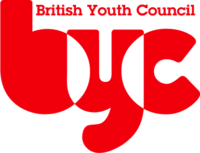Over three quarters of young Brits demand equal voting rights across the UK
As May’s local elections fast approach, young people and campaigners are calling for an end to the voting postcode lottery in the UK. Currently, the voting age is 16 for local elections in Scotland and Wales, but 18 for England and Northern Ireland. This means that over 1.5million 16-and-17-year-olds in the UK do not have
- Published in News, Press, Votes at 16, Voting
British Youth Council lobby new minister responsible for young people
The British Youth Council has reached out to welcome the new Minister, Lord Kamall, who now has responsibility for policy relating to children and young people at the Department for Digital, Culture, Media and Sport. The new appointment follows the commencement of Liz Truss MP’s tenure as Prime Minister. The youth-led charity used the moment
Lobbying for votes at 16 at Parliament
Political freedom, parity, and equality are fundamental concepts that underpin a true democracy. This means giving every citizen of a nation the unqualified right to cast a vote on who they believe should be representing them on a local, regional, and national scale. In many cases, however, the youth are treated as an exception to
- Published in APPG on Votes at 16, Blogs, UK Youth Parliament, Votes at 16
UK Youth Ambassadors: We support votes at 16
As international ambassadors, we have seen incredible progress in countries around the world in giving young people the right to vote. Even within the UK, in Wales and Scotland, young people aged 16 and above have been granted voting rights in local elections and referendums, enabling them to influence key decisions that affect their lives
- Published in Blogs, UK Young Ambassadors, Votes at 16
British Youth Council reignites campaign for a lower voting age
The British Youth Council is renewing its efforts to lobby politicians for a lower voting age of 16 as part of a 3-year partnership with The Body Shop. Together, they will develop a Votes at 16 manifesto, calling for all political parties to incorporate full voting rights to 16- and 17-year-olds in all national elections
- Published in News, Press, Votes at 16
Everyone is talking about young people
Everyone’s talking about young people. Most of it is bad news. Young people are, depending on the source, too nice for our own good, morally immature, useless, or informed and powerful. Turns out you can make young people suit your story pretty easily. For the UK’s young people, when you look at statistics, our lot
- Published in Blogs, Votes at 16
NEW AGE FOR DEMOCRACY: 16 year olds to vote in Welsh Assembly elections
Assembly Members in Wales have granted 16 and 17 year olds the right to vote in Welsh Assembly elections and Welsh local council elections. The British Youth Council and Votes at 16 Coalition are celebrating the historical moment as a landmark in the campaign for Votes at 16 but call on the political parties in
- Published in News, Votes at 16
Political parties should address the issues that matter to young people
The British Youth Council is launching ‘Our Parliament, Our Vision’, a manifesto which outlines our vision for the next UK Parliament. The manifesto sets out the four priorities that we want the next Parliament to address the issues of young people including climate change and mental health. Young people want the next Parliament to do
- Published in General Election, News, Press
#YOUMADEITHAPPEN in 2019
A lot has happened at the British Youth Council this year. From reaching 1.1 million young people in Make Your Mark, the largest youth consultation in the country, to celebrating our 70th anniversary and using this as an opportunity to engage with new Alumni networks. We also secured funding from the People’s Postcode Lottery to follow
- Published in Fundraising, News
1.5 million young people denied a vote in the EU Elections
The British Youth Council have expressed their dissatisfaction with the Government’s continued opposition to a lower voting age. The unplanned EU Elections which take place on Thursday 23rd May will see 1.5 million young people aged 16 and 17 denied the opportunity to vote. Over the past 16 years, the youth-led charity has been campaigning
- Published in News, Votes at 16
- 1
- 2











